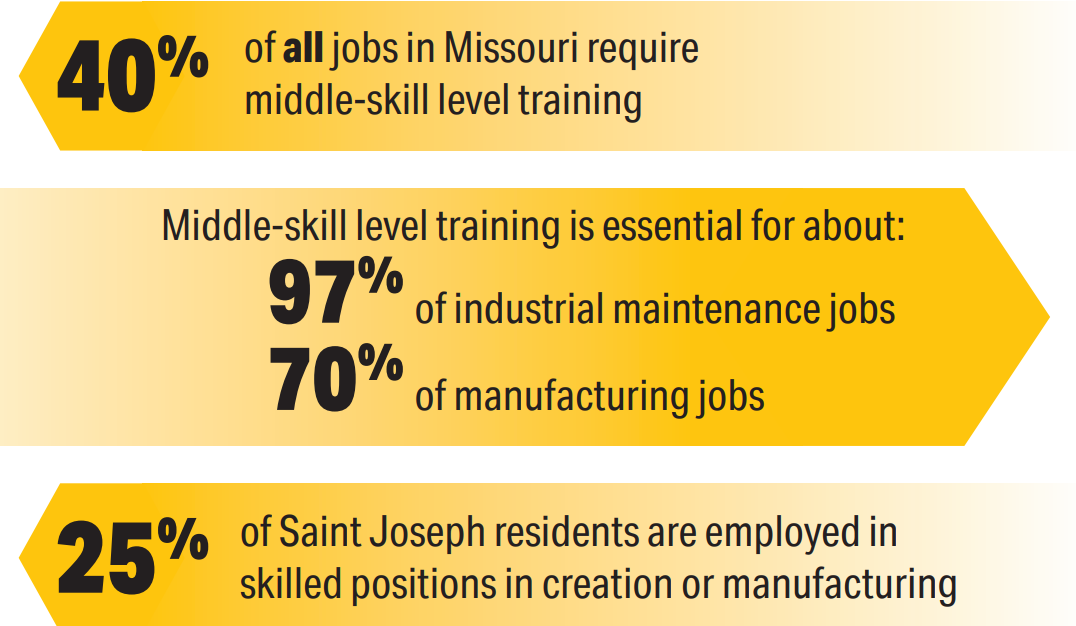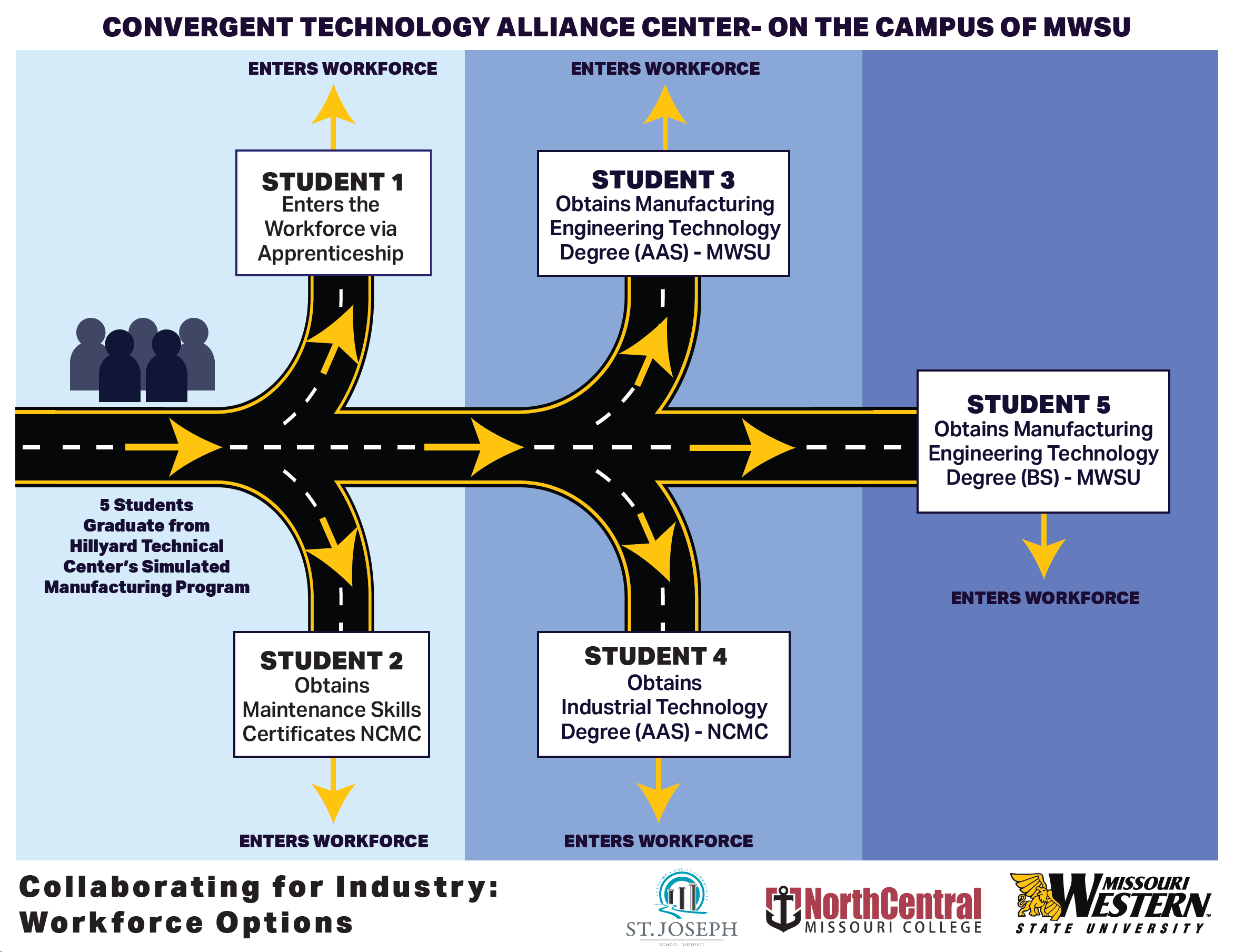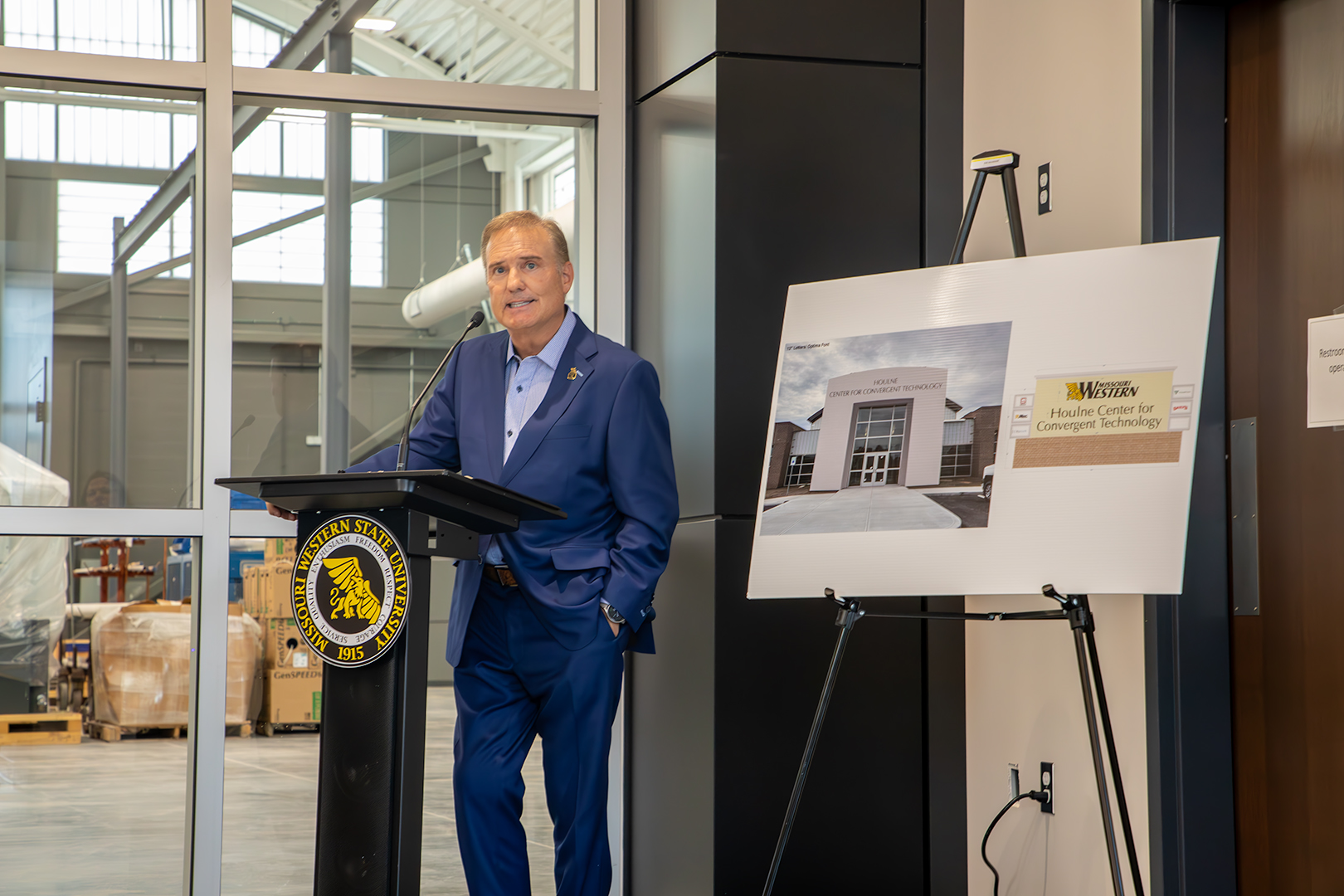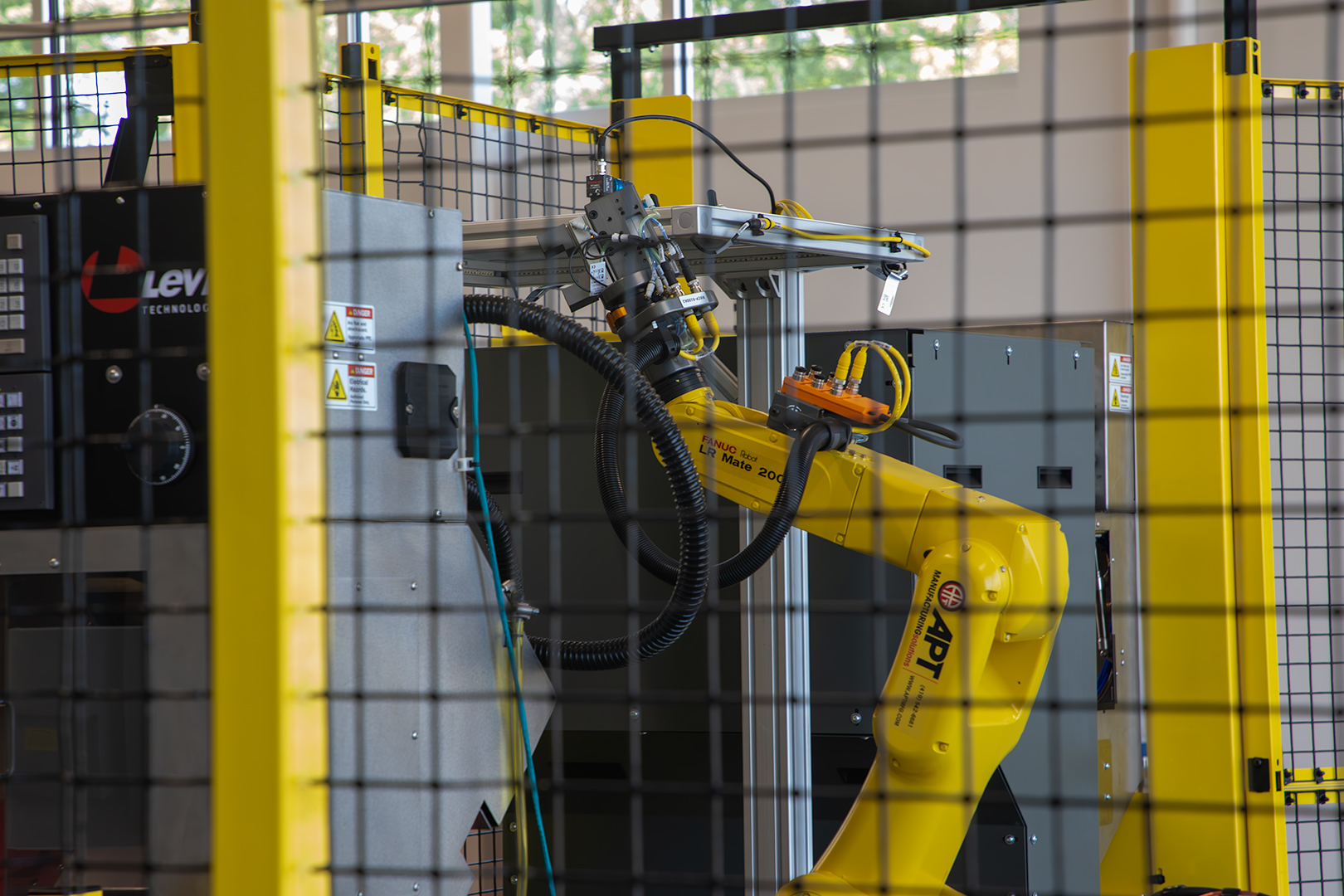Missouri Western State University (MWSU) and North Central Missouri College (NCMC) are collaborating to grow the region’s skilled manufacturing and construction workforce with Missouri Western’s newly constructed Houlne Center for Convergent Technology. The Center delivers practical, applied learning instruction in skilled manufacturing and construction professions as well as innovative service technologies – like AI, robotics, GIS, sensor technologies, information technology and cybersecurity – that drive those sectors and others. The Center is home both to a broad range of certificate and degree programs as well as offering targeted workforce training, designed to meet the needs of incumbent workers.
The Houlne Center houses applied learning labs that mimic the equipment and facilities used in today’s and tomorrow’s manufacturing technology, industrial technology, and construction technology employer’s factory floors and job sites. The Center is the capstone of an increasingly comprehensive ecosystem of technology-based professional education founded upon the alliance of MWSU and NCMC, with partners at the Saint Joseph School District and Hillyard Technical Center.
The HCCT will be a bustling hub for education and training in manufacturing, construction, and advanced support technology. Visitors will include employees and leaders of regional industries, college and university students, new companies considering relocation to our area, government leaders and economic development professionals, K-12 school groups, adult learners, equipment vendors, civic organizations, traditional faculty and professors of practice, and more.

Click below to hear from the Workforce Development Director about the Houlne Center capabilities.

The Economic Importance of Growing Missouri’s Skilled Manufacturing Workforce
Industry and manufacturing are key to Missouri’s economy and fuel prosperity at the regional, state, county, and local levels. Thriving manufacturing and construction sectors are only possible when a sufficiently large, sufficiently skilled workforce is available. In turn, those good paying jobs contribute to vibrant, successful communities and enable individual citizens to escape cycles of poverty and become self-sufficient.
Three major industries are prevalent in Buchanan County and the surrounding area – industrial products and manufacturing, agricultural/food processing, and construction and support services. There is a substantial convergence in the technologies these sectors rely upon, such as controls, electronics, pneumatics, and hydraulics.
Recent studies indicate that strong job growth will take place in industrial technology, mechanical technology, and construction technology. Yet before we can capitalize on that opportunity we must first overcome the huge gap in today’s skilled manufacturing workforce. Nearly two-thirds of Northwest Missouri Manufacturers already report grappling with a scarcity of skilled workers and with serious deficiencies in the level of skills possessed by the labor available.
About the Houlne Center for Convergent Technology
With support from the state, city, and county, as well as contributions from industry partners, foundations, and private donors, sufficient funds were raised to complete construction and furnish the building with equipment with no need for bonding. Early on, the MWSU Foundation supplied funding to assist the University with the planning phases of the project. Ground was broken on July 11, 2023 and the building is on schedule to ready to begin offering instruction in the Fall of 2024, when the ribbon cutting is anticipated.
The Center owes its new name to tech entrepreneur, futurist, best-selling author and philanthropist, Tim Houlne, who graduated from Missouri Western in 1986 with a degree in business. In July 2024, he generously contributed the third largest outright gift in the University’s history by committing $3 million to the Center’s operating funds. Houlne is the CEO of Dallas-based Humach, Inc., a company which provides innovative customer experience solutions for business using AI and automation technology.
A broad range of industrial partners provided valuable technical input on the building’s construction and initial equipment selection. The 20,000 square foot building, which houses applied labs, will be accompanied by a 10,000 square foot equipment storage facility. Over $2 million in industry-grade lab equipment is available for teaching and workforce training.
The Center aims to provide a range of pathways to technology-focused professional education in high demand careers. The educational offerings supported by the Center can serve students graduating from high school, completing a technical school education, returning to school from the workforce, or companies seeking to strengthen the skills of their existing workers.


About Tim Houlne ’86
What is Convergent Technology?
Many industries that manufacture very different products — such as heavy machinery versus food processing — often rely on very similar equipment and techniques. The training that skilled workers require converges on a set of shared, core systems and experiences.
The Center will focus on delivering training in a variety of core skills essential to a wide range of different industries, rather than on applications specific to individual fields or companies. For example, the manufacturing training will encompass hydraulics, pneumatics, power transfer, conveyance, robotics, programmable logic controllers (PLCs), and sensors.

